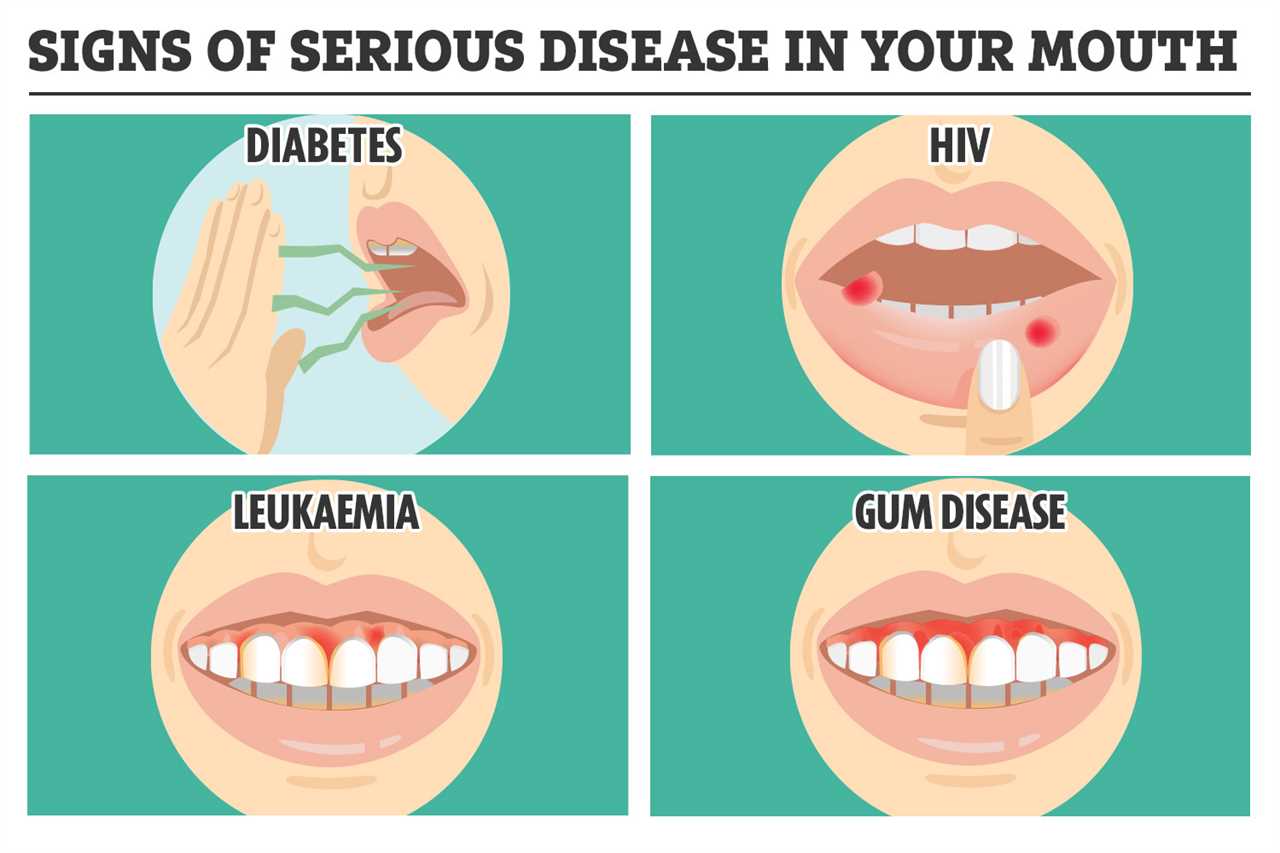
Introduction: The Secrets Your Mouth Holds
Our mouths are more than just a tool for eating and talking – they can also provide important clues about our overall health. While we all know the importance of good dental hygiene, there are other signs and symptoms that dentists look for that may indicate serious diseases, such as cancer and HIV. However, with an increasing number of people unable to access NHS dental appointments, many Brits could be missing out on potentially life-saving diagnoses. In this article, we will explore some of the diseases dentists look for in your mouth and how you can check for them yourself.
1. HIV: Not Just a Mouth Sore
Having an ulcer on your lips, inside of your cheek, or on your gums that won't go away could be a sign of HIV. HIV, which attacks the body's immune system, can lead to AIDS if left untreated. While there is no cure for HIV, effective drugs can enable most people with the virus to live a long and healthy life, especially when caught early. According to Dr. Jon Hewitt, oral lesions are found in the mouths of 70-90% of HIV-positive patients. Other signs in the mouth include fungal infections and a rare type of cancer called Kaposi sarcoma.
2. Diabetes: The Unexpected Sign
Diabetes, a serious disease that affects blood sugar levels, can also leave its mark on your mouth. Beyond common symptoms like excessive thirst and frequent urination, having "fruity" smelling breath can be an indicator of diabetes. This smell, described as similar to pear drop sweets or nail varnish, is the result of a dangerous condition called diabetic ketoacidosis. Additionally, diabetes can weaken the immune system, making it easier for fungal infections to develop in the mouth.
3. Gum Disease: More Than Just Flossing
Bleeding, swollen, or red gums can be signs of gum disease, a condition affecting half of all adults in the UK. While gum disease can lead to tooth loss, there is also evidence suggesting a link to other life-threatening conditions like dementia and heart disease. In its early stages, gum disease can be treated at home, but it is still important to see your dentist for a proper assessment and guidance on treatment.
4. Leukaemia: Hidden Clues
Swollen, bloody, and sore gums can also be a sign of leukaemia, a type of blood cancer. Dr. Jon Hewitt explains that the blood from your gums may have a "green tinge." Additionally, other signs of leukaemia in the mouth include spontaneous bleeding, regular ulcers, or enlarged lymph nodes in the neck or jaw area. Leukaemia affects people of all ages and has a survival rate of just over 50%, making it one of the most deadly forms of cancer.
Conclusion: The Importance of Dental Check-ups
Our mouths can reveal a great deal about the state of our health, and dentists are often the first to spot signs of serious diseases. Regular dental check-ups are crucial for early detection and treatment. However, with millions of adults unable to access NHS dental appointments, many individuals could be missing out on life-saving diagnoses. It is vital that we prioritize dental healthcare and ensure everyone has access to the necessary services. So, next time you brush your teeth, take a few moments to examine your mouth and pay attention to any unusual signs or symptoms – your mouth may just be trying to tell you something important.






